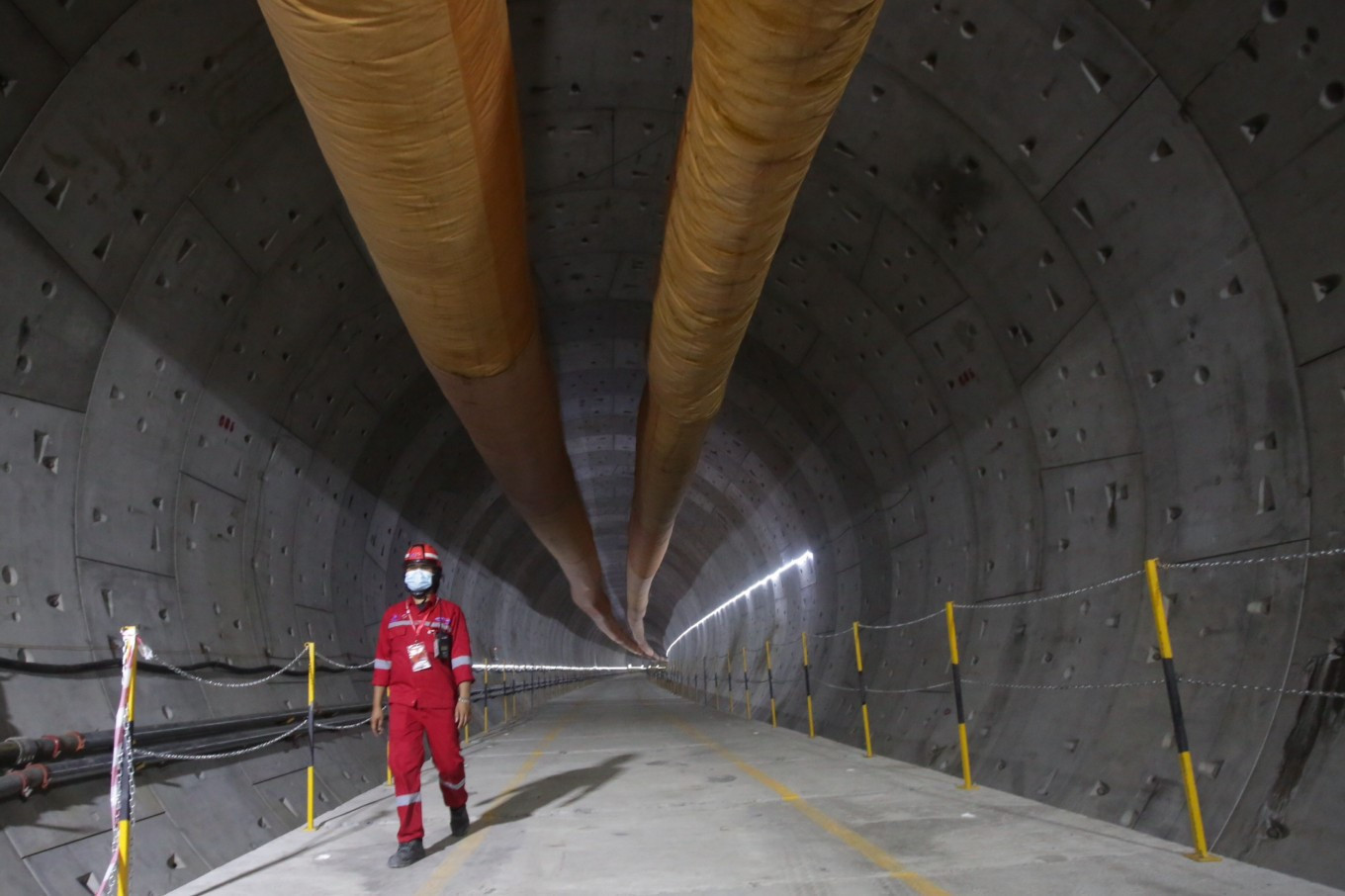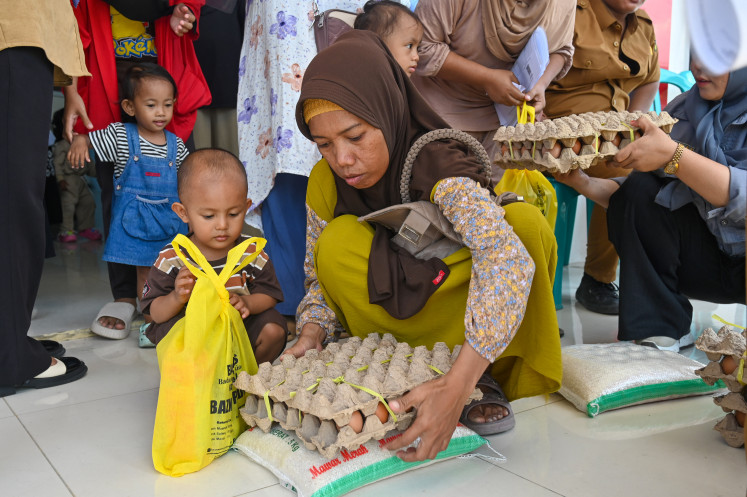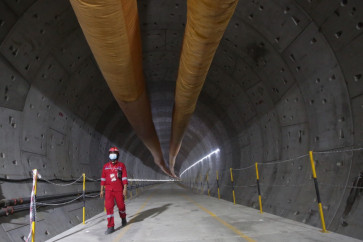Popular Reads
Top Results
Can't find what you're looking for?
View all search resultsPopular Reads
Top Results
Can't find what you're looking for?
View all search resultsAnalysis: Fatal accident puts rail project at risk of further delays, higher costs
Change text size
Gift Premium Articles
to Anyone
T
wo Chinese workers died in an accident in the construction of the Jakarta-Bandung High-Speed Railway on Sunday, raising concerns about the project’s safety, timeline and costs. Since it began, the project has suffered multiple accidents, delays and ballooning cost overruns.
The first major accident occurred in late 2019 when PT Kereta Cepat Indonesia China (KCIC), a joint venture between Indonesian and Chinese state-owned enterprises (SOEs) for the HSR project, was constructing the pile foundation near the Purbaleunyi toll road.
The construction coincided with the relocation of state-owned energy company Pertamina's pipeline from the north of the Cipularang toll road section to the south. A pipe broke and caused a fire that killed one Chinese worker employed by PT Ming Shu Construction, a subcontractor of the project. Lack of communication with stakeholders was said to have contributed to the incident.
Then, in December 2021, a pillar collapsed on an excavator at the high-speed rail project site in Teluk Jambe, Kerawang, West Java. PT KCIC found six pillars misaligned and instructed contractors to rework the pillars. However, the dismantling of the pillars was allegedly done without properly following the standard operating procedures, causing one of the pillars to fall on an excavator.
Recently, a work train consisting of a diesel locomotive and railway track laying machine went off the tracks and hit concrete on the sides of the project area on Sunday, leaving two Chinese workers dead and two others injured.
In response to the fatal accident, the National Transportation Safety Committee (KNKT) has opened an investigation on the accident site, halting project activities in the area. However, PT KCIC president director Dwiana “Edo” Slamet Riyadi insisted that project activities in other areas were continuing, such as the construction of the auxiliary building, stations and Overhead Contact System (OCS), preventing further delays and therefore avoiding more cost overruns.
Furthermore, Edo said KCIC would evaluate their standard operating procedures for railway track laying as well as other processes and ensure that all work carried out by the project contractor met the work safety aspects in every activity.


















